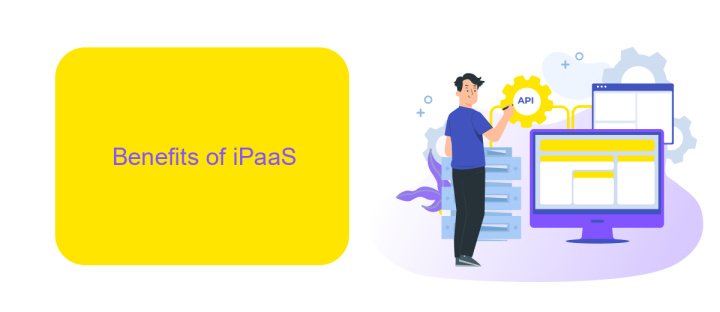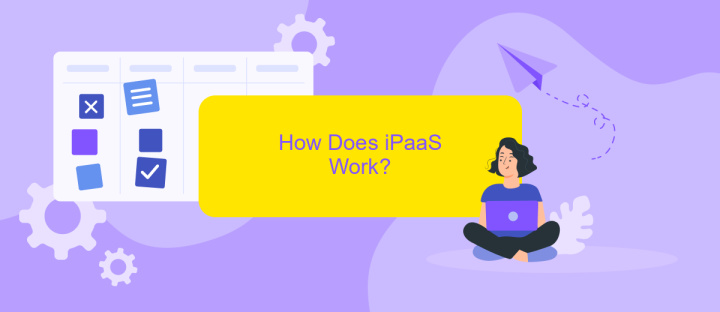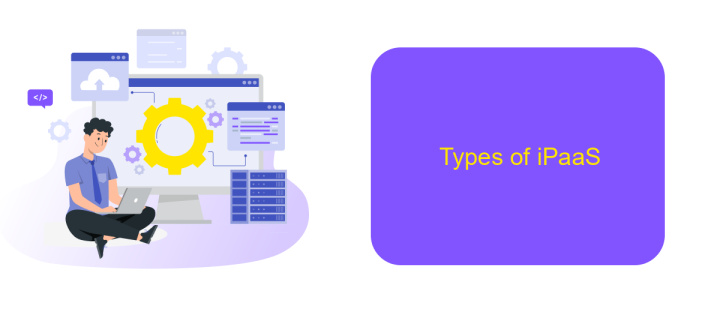What Does iPaaS Stand for
iPaaS, or Integration Platform as a Service, is a cloud-based solution that simplifies the integration of various applications and data sources. By providing a unified platform, iPaaS enables seamless data flow and communication between disparate systems, enhancing operational efficiency and agility. This article explores the fundamental concepts, benefits, and key features of iPaaS, shedding light on why it has become an essential tool for modern businesses.
What is iPaaS?
Integration Platform as a Service (iPaaS) is a cloud-based solution designed to connect various applications, data, and processes within an organization. It enables seamless integration across different systems, facilitating the flow of information and ensuring that all components work together efficiently. iPaaS is especially useful for businesses that rely on multiple software applications and need a streamlined way to manage data exchange.
- Automates data integration between disparate systems
- Offers pre-built connectors for popular applications
- Provides a user-friendly interface for managing integrations
- Scales with your business needs
One of the leading iPaaS solutions is ApiX-Drive, which simplifies the integration process by offering a wide range of connectors and an intuitive interface. With ApiX-Drive, businesses can easily set up and manage their integrations without the need for extensive technical knowledge. This not only saves time but also ensures that data flows smoothly across all systems, enhancing overall operational efficiency.
Benefits of iPaaS

Integrating various business applications can be a daunting task, but iPaaS (Integration Platform as a Service) simplifies this process by providing a unified platform for seamless data exchange. One of the primary benefits of iPaaS is its ability to automate workflows, reducing the need for manual intervention and thereby minimizing errors. This not only saves time but also enhances operational efficiency by ensuring that data flows smoothly between disparate systems, enabling businesses to focus on core activities rather than integration challenges.
Another significant advantage of iPaaS is its scalability and flexibility. As businesses grow, their integration needs evolve, and iPaaS platforms like ApiX-Drive offer the adaptability required to meet these changing demands. ApiX-Drive, for instance, allows users to set up integrations without extensive coding knowledge, making it accessible for non-technical staff. This democratization of integration capabilities ensures that businesses can quickly adapt to new technologies and market demands, fostering innovation and maintaining a competitive edge.
How Does iPaaS Work?

iPaaS, or Integration Platform as a Service, simplifies the process of connecting various applications and services within an organization. It acts as a middleware, enabling seamless data flow and communication between disparate systems. This integration is crucial for businesses that rely on multiple software solutions to manage their operations.
- Data Mapping: iPaaS platforms like ApiX-Drive help map data fields between different applications, ensuring that information is accurately transferred.
- Workflow Automation: Automate routine tasks by setting up workflows that trigger specific actions when certain conditions are met.
- Monitoring and Management: Continuous monitoring of integrations ensures that data flows smoothly without interruptions, and any issues are promptly addressed.
By using iPaaS solutions, businesses can reduce the complexity of managing multiple integrations and focus on their core activities. ApiX-Drive, for instance, provides user-friendly tools to create and manage integrations without the need for extensive coding knowledge, making it accessible for organizations of all sizes.
Types of iPaaS

iPaaS, or Integration Platform as a Service, offers various types to cater to different business needs. These platforms are designed to streamline the integration of disparate systems, applications, and data sources within an organization. The types of iPaaS can be broadly categorized based on their functionalities and target users.
First, there are enterprise iPaaS solutions, which are robust platforms designed for large organizations with complex integration requirements. These platforms offer extensive customization options and support for a wide range of protocols and data formats. On the other hand, there are SMB-focused iPaaS solutions, which are tailored for small to medium-sized businesses. These platforms prioritize ease of use and quick deployment, often featuring pre-built connectors and templates.
- Enterprise iPaaS: Advanced features for large-scale integrations.
- SMB iPaaS: User-friendly interfaces for small to medium businesses.
- Specialized iPaaS: Focused on specific industries or integration types.
- Hybrid iPaaS: Combines on-premise and cloud-based integration capabilities.
Platforms like ApiX-Drive exemplify SMB iPaaS solutions by offering an intuitive interface and a wide range of pre-built connectors. This allows businesses to quickly set up integrations without extensive technical knowledge, making it easier to automate workflows and improve operational efficiency.
Top iPaaS Providers
When exploring top iPaaS providers, it's essential to consider platforms that offer robust integration capabilities, ease of use, and scalability. Leading names in the industry include MuleSoft, which provides a comprehensive solution for connecting applications, data, and devices with its Anypoint Platform. Another significant player is Dell Boomi, known for its low-code development environment that simplifies the integration process and accelerates time-to-value.
Additionally, ApiX-Drive stands out as a user-friendly iPaaS solution tailored for businesses looking to automate workflows without extensive technical expertise. It supports a wide range of integrations and offers an intuitive interface, making it accessible for users of all skill levels. Other notable providers include Informatica, with its cloud data management and integration services, and Jitterbit, which excels in combining API integration and management. Each of these platforms brings unique strengths, catering to different business needs and helping organizations streamline their operations efficiently.
- Automate the work of an online store or landing
- Empower through integration
- Don't spend money on programmers and integrators
- Save time by automating routine tasks
FAQ
What does iPaaS stand for?
How does iPaaS work?
What are the benefits of using iPaaS?
Can iPaaS be used for automating workflows?
What is an example of an iPaaS service?
Apix-Drive will help optimize business processes, save you from a lot of routine tasks and unnecessary costs for automation, attracting additional specialists. Try setting up a free test connection with ApiX-Drive and see for yourself. Now you have to think about where to invest the freed time and money!


